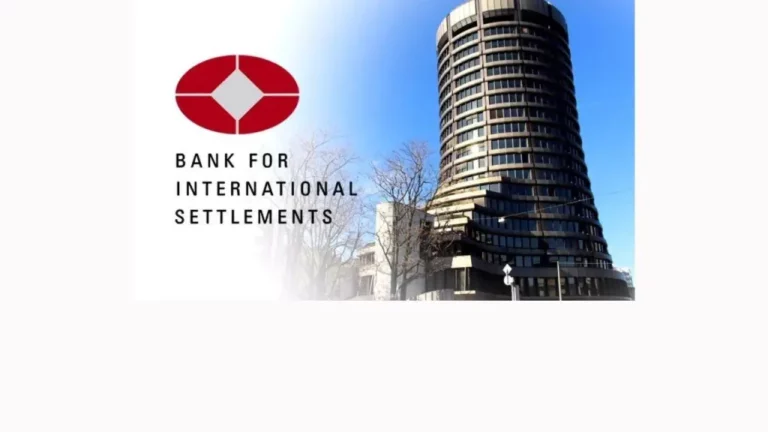
The financial world is abuzz with excitement as five major global financial institutions – BIS (Bank for International Settlements), Deutsche Bundesbank, De Nederlandsche Bank, European Central Bank, and the Bank of France – have come together to unveil a groundbreaking initiative. In a joint announcement, these institutions have proudly introduced a successful Proof of Concept (PoC) known as Project Atlas. This innovative project is set to redefine the way we measure the macroeconomic soundness of cryptocurrency markets and decentralized finance (DeFi) protocols. Let’s delve into the details of this pioneering development and explore its potential impact on the world of finance.
Understanding the Genesis of Project Atlas
BIS (Bank for International Settlements), Deutsche Bundesbank, De Nederlandsche Bank, European Central Bank, and the Bank of France have long been at the forefront of financial innovation and stability. With the rapid rise of cryptocurrencies and the burgeoning DeFi landscape, they recognized the need for a more comprehensive and globally coordinated approach to assess the macroeconomic health of these markets.
Project Atlas was conceived as a response to this growing need. It represents a collaborative effort that combines the expertise of these esteemed institutions to create a unified framework for evaluating the crypto and DeFi sectors. But what exactly does this mean for the world of finance, and why is it so significant?
A New Era of Crypto and DeFi Analysis
The cryptocurrency and DeFi markets have witnessed explosive growth in recent years. Bitcoin, Ethereum, and a multitude of other digital assets have become mainstream investment vehicles, and DeFi protocols are revolutionizing traditional financial services. However, with this rapid expansion comes a pressing need for robust oversight and analysis.
Project Atlas aims to fill this crucial gap by providing a standardized methodology for assessing the macroeconomic soundness of these markets. This includes evaluating factors such as market liquidity, risk exposure, and the overall health of DeFi platforms. By doing so, the project seeks to enhance transparency and reduce systemic risks associated with the crypto and DeFi ecosystems.
The Mechanics of Project Atlas
To truly grasp the significance of Project Atlas, it’s important to understand how it works. At its core, the initiative leverages cutting-edge data analytics and blockchain technology to gather and process vast amounts of information from the crypto and DeFi sectors. This data is then analyzed using sophisticated algorithms to derive meaningful insights.
One of the key innovations of Project Atlas is its ability to aggregate data from a wide range of sources, both on-chain and off-chain. This comprehensive approach ensures that the analysis is not limited to a single aspect of the market but takes into account its multifaceted nature.
The Collaborative Powerhouse: BIS (Bank for International Settlements), Deutsche Bundesbank, De Nederlandsche Bank, European Central Bank, and the Bank of France
The involvement of BIS (Bank for International Settlements), Deutsche Bundesbank, De Nederlandsche Bank, European Central Bank, and the Bank of France in Project Atlas adds immense credibility to the initiative. These institutions collectively possess decades of experience in central banking, financial regulation, and economic analysis. Their collaboration sends a clear message that they are committed to ensuring the stability and integrity of the global financial system in the face of evolving challenges.
Project Atlas and the Broader Financial Landscape
The implications of Project Atlas extend far beyond the crypto and DeFi sectors. By establishing a standardized framework for assessing these markets, it paves the way for increased institutional participation. Traditional financial institutions, which have been somewhat cautious about venturing into the crypto space, may find Project Atlas to be a reassuring step towards greater transparency and risk management.
Furthermore, regulatory bodies and policymakers around the world are likely to take an interest in the outcomes of this initiative. The data and insights generated by Project Atlas could inform future regulatory decisions and help shape the direction of the crypto and DeFi landscape.
Looking Ahead
In the world of finance, where innovation and disruption are constant companions, initiatives like Project Atlas represent a crucial step towards achieving stability and transparency. The collaboration between BIS (Bank for International Settlements), Deutsche Bundesbank, De Nederlandsche Bank, European Central Bank, and the Bank of France is a testament to the proactive approach that global financial institutions are taking to address the challenges posed by the crypto and DeFi sectors.
As Project Atlas moves forward, it will be closely watched by industry participants, regulators, and enthusiasts alike. Its success could set a precedent for future collaborative efforts aimed at ensuring the macroeconomic soundness of emerging financial technologies.
In conclusion, the joint announcement of Project Atlas by BIS (Bank for International Settlements), Deutsche Bundesbank, De Nederlandsche Bank, European Central Bank, and the Bank of France marks a significant milestone in the world of finance. It is a clear signal that these institutions are committed to embracing innovation while upholding the principles of stability and transparency that underpin the global financial system. As we venture further into the era of cryptocurrencies and decentralized finance, initiatives like Project Atlas will play a pivotal role in shaping the future of finance.